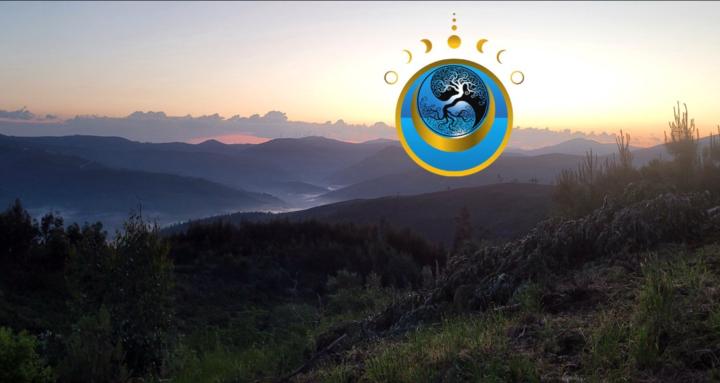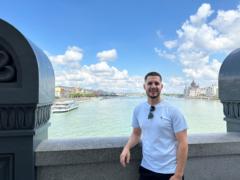New in the Classroom: Step 4 Non-Dual Release Session!
Hey everyone! We've uploaded a compelling, insightful new video demonstration of the Shangriballa Method classroom—you definitely don't want to miss this one. We're excited to share Part 4: The Non-Dual Release Session done with Dagmar! This session is a crucial piece of the puzzle because it brings together everything we’ve talked about in the previous steps and shows you exactly how the theory translates into real-time somatic release. What You'll See in This Session This is a profound, yet gentle inquiry. Dagmar was focusing on an underlying charge related to her relationship with her father. Watch how Patrick expertly navigates this deep, relational material: - From Belief to Body: Patrick guides Dagmar from the mental awareness of a core belief right into the physical feeling—the somatic imprint—of that paternal dynamic. - Meeting the Wounded Child: You'll see the crucial moment where Dagmar connects the pain to the Wounded Child part of herself, shifting the dynamic from self-blame to self-compassion. - Witnessing the Release: The session brilliantly demonstrates how the loving awareness of who we truly are is the necessary container for the release. The journey concludes with a beautiful sense of gentleness and softness, proving that actual release doesn't require a struggle; it requires presence. 🙏 A Big Thank You! We want to send immense gratitude to Dagmar for her courage and generosity in sharing this deep, personal session with the entire Shangriballa community. Sharing this vulnerable process is a powerful gift to all of us who are learning. And, of course, a huge thank you to Patrick for his masterful, gentle guidance, demonstrating the Shangriballa Method in action. You can find the video uploaded now in the classroom section under the Shangriballa Method module! Dive in, watch closely, and let us know your biggest takeaway in the comments below!
Documentary - The Birth of Shangriballa—and Our Community
Waking Up—Waking In: A Leap of Faith Hey everyone, We've got some incredible news we're so proud to finally share with our family here in the Skool community. You hear us talk all the time about the Shangriballa Method and the power of transformation, but today, we're sharing the ultimate origin story. We're beyond thrilled to officially announce and share our long-awaited documentary, "Waking Up—Waking In: A Leap of Faith." This isn't a glossy film we just paid for; this is the raw, beating heart of why we do what we do. It’s a 30-minute peek behind the curtain, showing the breathtaking journey of my own personal transformation. This documentary is literally how the Shangriballa Method was born. I had to live this truth, feel the despair of the "before," and walk through the fire to find the freedom of the "after." But here's the beautiful part: this documentary is about much more than just my story now. Through this work, we've met wonderful people, like the brilliant Patrick Boulan, who not only connected with the core truth of the method but also confirmed its structure. This validation helped us realize that Shangriballa has become something greater than I ever imagined—it's an evolving concept shared by everyone here. It's a community understanding where each person finds their own unique interpretation, adapting it to their unique life situations. We've all played a part in defining it. I'm thankful for every suffering, every opportunity to grow, because it all came from grace and led us here, together. This documentary is our testament to that journey and that shared spiritual healing. Please watch it, reflect on it, and share your biggest takeaways right here in the comments. We can’t wait to hear how this story resonates with your own path to self-discovery and how you uniquely experience the Shangriballa Method. Welcome to the beginning, again! ❤️ Lisa Silva
Understanding Trauma by Patrick Boulan
Non-Duality and Trauma. This article by Patrick forms part of a more extended discussion in our classroom, "Shangriballa Method" Understanding Trauma and integrating it is very much part of non-dual states of awareness. It is essential to understand that trauma is not in the event we have to face, but in the unfinished response of our nervous system and emotions to that event. Trauma can be the consequence of a shock in the face of an extreme or harrowing situation, but it can also be the consequence of a more gradual process when a child is faced with adversity, or when their needs are not met, or when they are hurt. This is known as developmental or complex trauma. Etymologically, the word trauma comes from the Greek Trauma, which means injury. But the injury is not in what happened to us but in what happened within us in reaction to what happened to us. We can, therefore, define trauma as a fixation or blockage of our nervous system's natural response to a situation that threatens our physical, psychological, emotional, or energetic balance. When faced with a highly adverse situation, the autonomic nervous system triggers a chain reaction that sets up a fight, flight, or freeze response. This reaction simultaneously creates significant energy charges in the body and a range of emotions. But if the situation is perceived as too dangerous or unsettling, or if it generates too high a level of insecurity, or if it causes an internal reaction that is experienced as too strong, too violent, too intense, or too disturbing, or if it leaves us feeling too helpless or destabilised, then our whole being contracts around the experience because we feel threatened in our ability to restructure ourselves or to survive. Because of this contraction, the response initiated by the nervous system to the situation remains constrained and cannot be fully executed. The nervous system can no longer work towards its return to equilibrium and its regulation. Furthermore, the energy charges, emotions, and feelings evoked by the system's activation cannot unfold normally either and are prevented or repressed, unable to find their resolution.
Shangriballa Method - Non Dual Therapy
Hello, Shangriballa Family! I have a feeling many of you will be as excited about this as Patrick and I are. We've heard countless times how much the Trauma-Informed Non-Dual sessions at our retreats have helped you gain not only profound insights but also integrate them upon returning home. It's the critical link between the cushion and real life, right? Well, we took those deep-dive sessions and recorded them! We packaged them up so you can revisit the wisdom, or catch up on what you might have missed. Think of it as your ongoing integration support, available right here in our classroom. Here’s what you get: - Part 1: The Blueprint of Trauma. We explore what it means to be trauma-informed and understand the very foundations of how the separate self creates and holds trauma, - Part 2: Connecting the Threads. This is where the magic happens! We examine closely how trauma affects every aspect of your life and skillfully connect those threads to the core understanding of non-duality. - Part 3: Working with the Body. It's not enough to just know this stuff. This final piece shows you how to bring all this information together, embodying it and working with it actively in yourself to dissolve the mist. Who gets access? This entire three-part workshop is a gift for our retreat alumni. If you've joined us at a Shangriballa retreat, drop a comment below saying 'Access, please!' and I'll personally grant you entry. Don't let those amazing insights fade; keep the integration flowing! What part of the trauma work did you find most helpful at your retreat?" https://www.skool.com/shangriballa/classroom/a3ed6c1e?md=229b53aa895c48e08cebe9f0922c7d0a
1-4 of 4

skool.com/shangriballa
Join our free non-dual community to connect with a global family of seekers. Discover your inner guru and integrate spiritual wisdom into your life.
Powered by






